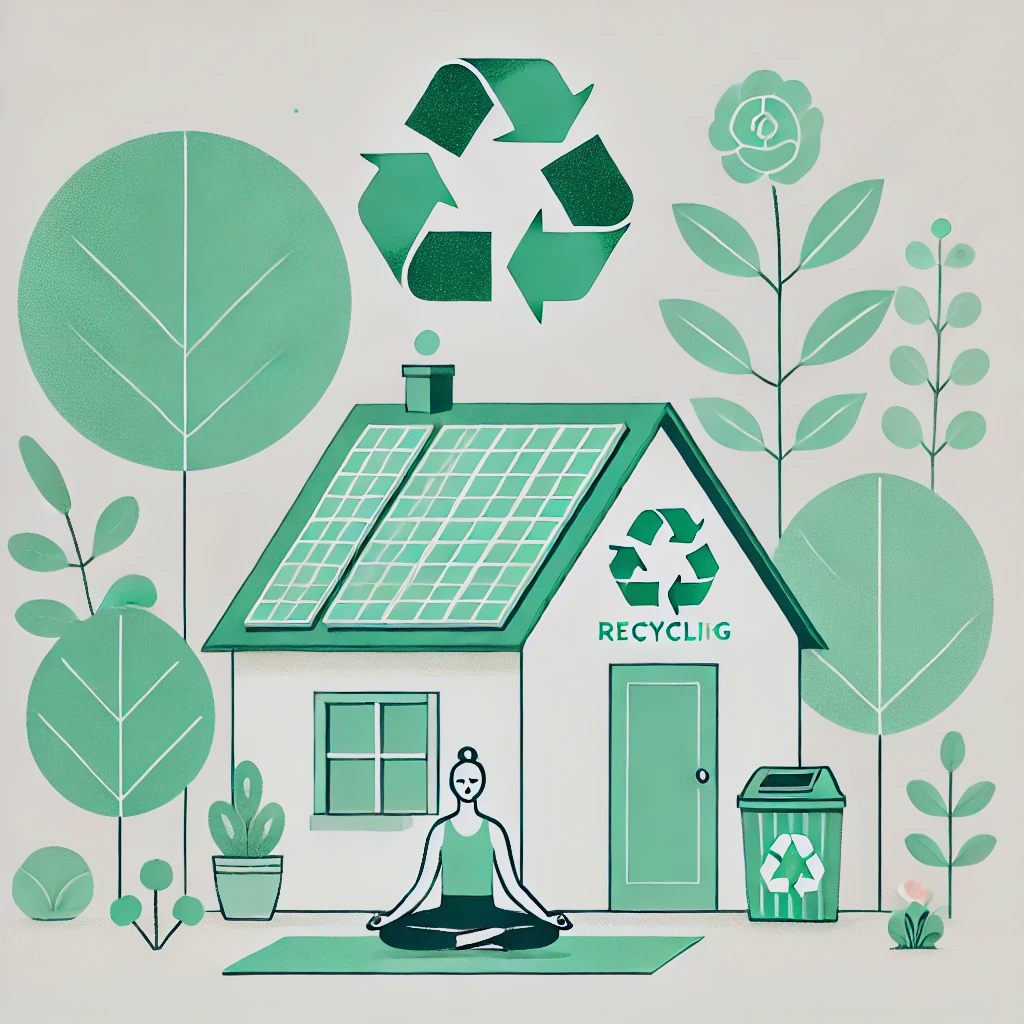In this blog post, we’ll explore the emerging trends in conscious living, delving into the merits and demerits of each trend. Whether you’re looking to embrace a more intentional life or simply curious about the movement, this post will provide you with a comprehensive understanding of the concept.
In a fast-paced world where consumerism, stress, and environmental degradation are rising, a growing number of individuals are seeking ways to live more mindfully and intentionally.
This shift has given birth to what we now call “conscious living.” It’s more than just a lifestyle; it’s a holistic approach to life that focuses on awareness, sustainability, and personal well-being.
What is Conscious Living?
Conscious living is about making informed and deliberate choices in every aspect of life—from the food we eat to the products we use and even how we spend our time.
It encourages mindfulness and intentionality in daily actions, promoting sustainability, well-being, and a deeper connection with the environment, society, and oneself.
With the world becoming increasingly complex, more people are drawn to this mindful way of life. Let’s explore the latest trends in conscious living that are shaping the future of how we live.

-
Minimalism: Less is More
One of the core tenets of conscious living is minimalism—a lifestyle choice that promotes reducing physical possessions to focus on what truly matters.
Minimalism aims to declutter both physical and mental spaces, leaving room for growth, peace, and more meaningful experiences.
Merits:
Clarity and Focus: A decluttered environment reduces distractions and allows individuals to focus on their goals and relationships.
Financial Freedom: By purchasing only what’s necessary, minimalists often find they save more money and are less burdened by debt.
Environmental Impact: Fewer purchases mean fewer resources consumed and less waste produced, leading to a positive impact on the environment.
Demerits:
Emotional Attachment: Letting go of sentimental items can be difficult for some, leading to emotional stress.
Social Pressure: In a consumer-driven society, minimalists may face criticism or feel isolated for their unconventional choices.
-
Plant-Based Diets and Ethical Eating
The rise of veganism and plant-based diets reflects a growing consciousness about health, animal rights, and environmental sustainability.
Ethical eating is about making food choices that are compassionate to animals, promote personal health, and reduce environmental impact.
Merits:
Health Benefits: Plant-based diets are linked to lower rates of heart disease, diabetes, and obesity.
Environmental Sustainability: Reducing meat consumption significantly lowers one’s carbon footprint, as animal agriculture is a major contributor to greenhouse gases.
Animal Welfare: Ethical eaters feel good knowing they are reducing harm to animals.
Demerits:
Nutritional Challenges: A poorly planned vegan or plant-based diet can lead to deficiencies in essential nutrients like B12, iron, and omega-3s.
Cost and Accessibility: High-quality plant-based foods can be expensive and may not be easily accessible in all areas.
-
Sustainable Fashion

The fashion industry has been criticized for its wastefulness, exploitation of labor, and environmental damage. Conscious living advocates are turning to sustainable fashion, which focuses on eco-friendly materials, ethical production practices, and reducing waste through slow fashion.
Merits:
Reduced Environmental Impact: Sustainable fashion brands often use organic materials, recycled fabrics, and eco-friendly dyes that are less harmful to the environment.
Ethical Labor Practices: Many sustainable brands ensure that their workers are paid fairly and work in safe conditions.
Durability: Slow fashion prioritizes quality over quantity, meaning clothes last longer and reduce the need for frequent purchases.
Demerits:
Higher Costs: Sustainable fashion is often more expensive due to ethical labor practices and higher-quality materials.
Limited Availability: Ethical fashion brands may be harder to find, especially outside major urban centers.
-
Mindfulness and Meditation Practices
Conscious living isn’t just about the external world; it’s also about cultivating a deeper sense of inner peace and awareness. Mindfulness practices such as meditation, yoga, and breathwork are gaining popularity as more people recognize the importance of mental well-being.
Merits:
Mental Health Benefits: Regular mindfulness practices can reduce anxiety, depression, and stress, promoting a calm and focused mind.
Increased Productivity: Mindfulness improves concentration and creativity, helping individuals to become more productive.
Better Relationships: A mindful approach to interactions promotes empathy, patience, and better communication.
Demerits:
Time Commitment: Developing a consistent mindfulness practice requires time and discipline, which can be challenging for those with busy schedules.
Superficial Practices: Some individuals may treat mindfulness as a trend without fully committing to its deeper aspects, reducing its effectiveness.
-
Eco-Friendly Homes and Green Architecture
As environmental concerns become more pressing, people are opting for eco-friendly homes that minimize energy consumption and utilize sustainable materials.
Green architecture incorporates energy-efficient designs, renewable energy sources, and water-saving technologies.
Merits:
Reduced Energy Costs: Eco-friendly homes often have lower utility bills thanks to solar panels, energy-efficient appliances, and insulation.
Lower Carbon Footprint: Green homes contribute to a reduction in environmental degradation and resource depletion.
Healthier Living Environment: Eco-friendly materials and designs reduce exposure to harmful chemicals, improving indoor air quality.
Demerits:
Initial Investment: The cost of building or retrofitting a home to be eco-friendly can be high, deterring some individuals from making the switch.
Maintenance: Some green technologies, such as solar panels, may require regular maintenance to function efficiently.
-
Digital Detox and Conscious Technology Use
In an era dominated by screens, conscious living also involves rethinking how we interact with technology. Digital detoxes—periods of time spent away from electronic devices—are becoming a popular way to reset and reconnect with the present moment.
Merits:
Improved Mental Health: Reducing screen time can decrease feelings of anxiety, depression, and isolation.
Enhanced Productivity: Without constant notifications and distractions, individuals can focus more effectively on their tasks and goals.
Better Sleep: Limiting screen time, especially before bed, improves sleep quality by reducing exposure to blue light.
Demerits:
FOMO (Fear of Missing Out): Disconnecting from social media and the internet can create anxiety about missing important updates or social interactions.
Professional Limitations: In some professions, being constantly connected is a necessity, making it difficult to implement a full digital detox.
-
Conscious Consumerism and Zero Waste Movement

Conscious consumerism encourages individuals to buy less, buy better, and think about the impact their purchases have on the planet.
The zero waste movement takes this a step further by encouraging people to reduce, reuse, and recycle in all aspects of life.
Merits:
Environmental Impact: By reducing waste and consumption, individuals can significantly lower their environmental footprint.
Financial Savings: Buying fewer, high-quality items means spending less in the long run.
Personal Fulfillment: Many individuals find a sense of purpose and satisfaction in making sustainable choices that align with their values.
Demerits:
Practical Challenges: Adopting a zero-waste lifestyle requires significant lifestyle changes, which can be overwhelming for some.
Availability of Products: Finding zero-waste products may be difficult in certain regions, limiting the accessibility of the movement.
Conclusion: The Future of Conscious Living
As we continue to face global challenges like climate change, mental health crises, and social inequality, the emerging trends in conscious living offer solutions that are not only sustainable but also fulfilling.
However, it’s important to acknowledge that every trend comes with its own set of challenges.
The key to adopting conscious living is finding a balance that works for you—embracing the merits while being mindful of the demerits. Whether it’s minimalism, plant-based eating, or sustainable fashion, every step towards conscious living is a step towards a healthier, more sustainable future.
How to Get Started with Conscious Living
If you’re ready to start your journey toward a more conscious life, begin by evaluating your current habits. What small changes can you make today to live more intentionally?
Remember, conscious living is a gradual process—it’s about progress, not perfection.
Incorporate mindfulness into your daily routine, make more eco-friendly choices, and be kind to yourself along the way. Conscious living is a powerful movement that can positively transform not only your life but the world around you.
By aligning with the values of conscious living, you’ll not only live more sustainably but also feel more connected, fulfilled, and at peace with yourself and the world around you.




